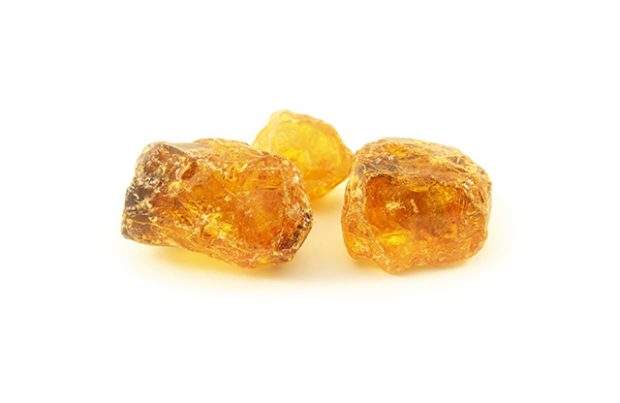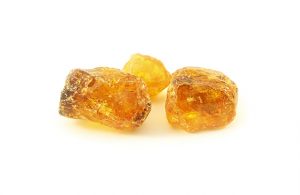
Abietic acid sources, health risks
Tuesday, October 03, 2017 by Jhoanna Robinson
http://www.naturalpedia.com/abietic-acid-sources-health-risks.html

Abietic acid is a yellowish resinous powder, which is available in rosin from coniferous trees such as fir, pine, and spruce. It has a boiling point of 250 degrees Celsius, melting point of 173 degrees Celsius, and flash point of 187 degrees Celsius.
Abietic acid is also known as (1R,4aR,4bR,10aR)-decahydro-1,4a-dimethyl-7-(1-methyl ethyl)-1-1,2,3,4,4a,4b5,6,10,10a-phenanthrene carboxylic acid; (1R,4aR,4bR,10aR)-1,4a-dimethyl-7-propan-2-yl-2,3,4,4b,5,6,10,10a-octahydrophenanthrene-1-carboxylic acid; 7,13-abietadien-18-oic acid; rosin acid; abietinic acid; and sylvic acid.
Abietic acid is stable and combustible, and is not compatible with strong oxidizing agents.
Abietic acid is soluble in substances like alcohol, carbon disulfide, acetone, benzene, chloroform, ethyl ether, and dilute aqueous solution of sodium hydroxide. It is an ingredient of pine resin, which is a highly viscous substance of plant or synthetic origin that is convertible to polymers.
Abietic acid is a base ingredient of paints, varnish, plastics, and soaps. It is used as an adhesive for transporting or holding food. It can also be mixed with CFC-113 (1, 1,2-Trichloro-1,2,2-trifluoroethane) as flux for soldering purposes. The use of CFC-113 has been restricted since 1996 because of its supposedly detrimental effects to the ozone layer.
Although abietic acid is said to cause a big amount of negative effects on the body, some studies have shown that it has antioxidant and anti-inflammatory properties, it is good for the heart, it is an emulsion stabilizer, a fibrin modulating agent (coagulant for hemorrhages), and a fibrinolytic agent (stimulates the dissolution of a blood clot).
Harmful effects that can be caused by abietic acid
Exposure to abietic acid is bad for the skin and can cause negative conditions such as allergic contact dermatitis.
Body systems harmed by abietic acid
Abietic acid is bad for the ocular system. Being exposed to it can severely irritate the eyes and cause chemical conjunctivitis, which is the swelling of the conjunctiva that is the inner surface of the eyelid.
Abietic acid is bad for the respiratory system. Inhaling it can give you pulmonary edema and asthma.
Abietic acid is bad for the digestive system. Ingesting it can result in a number of gastrointestinal issues such as nausea, diarrhea, and vomiting.
Where to learn more
- Low exposure of chemicals in food packaging over the long term may pose health concerns
- Over 170 harmful chemicals are legally allowed in food packaging
- Popular characters on food packaging may determine taste preferences of children
- One-third of food packaging contaminated with substance that may cause allergic reactions
- Fast food packaging is making unhealthy food even more dangerous due to fluorinated compounds
Summary
Exposure to abietic acid is bad for the skin and can cause negative conditions such as allergic contact dermatitis.
Abietic acid is bad for the ocular, digestive, and respiratory systems.
Abietic acid is stable and combustible, and is not compatible with strong oxidizing agents.
Sources include:
Tagged Under: Tags: abietic acid






